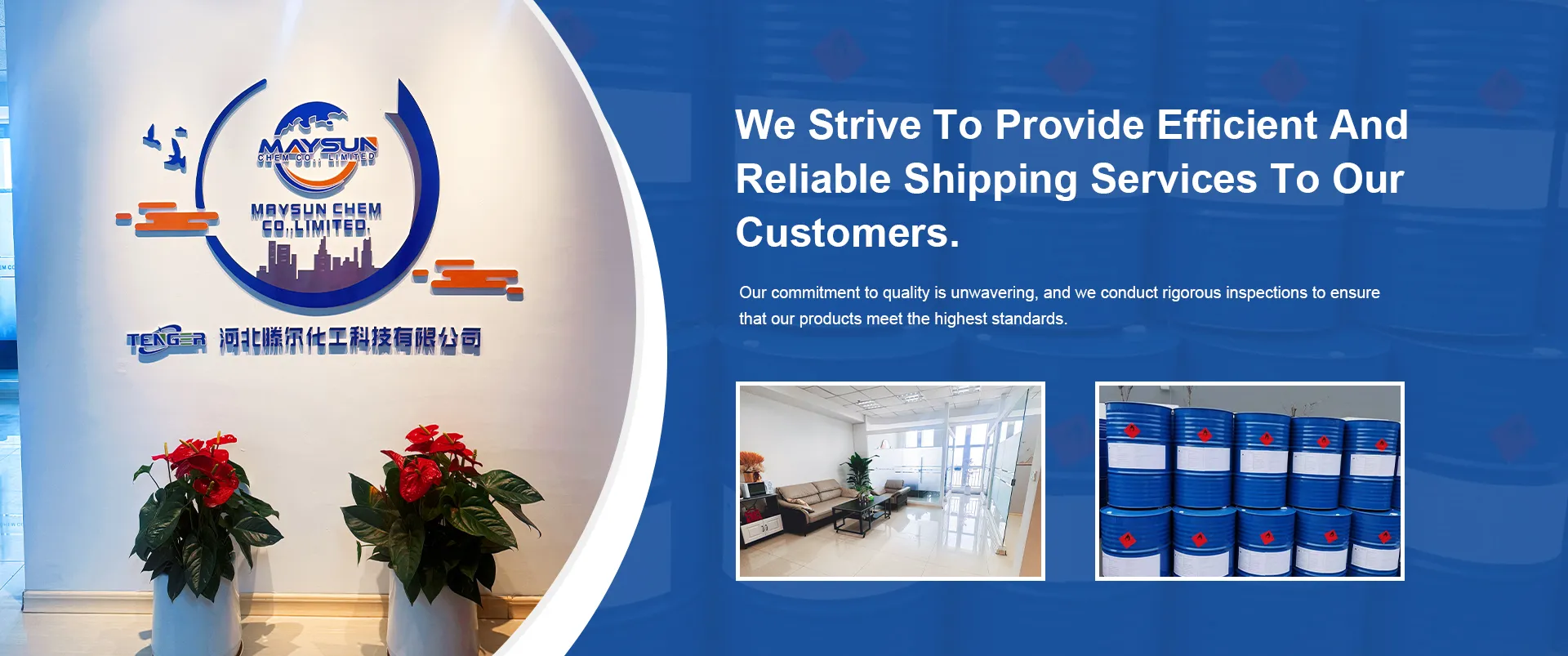
xanthan gum as emulsifier
The Role of Xanthan Gum as an Emulsifier
Xanthan gum is a widely utilized polysaccharide that serves multiple purposes across various industries, particularly in food and cosmetics. It is produced through the fermentation of glucose or sucrose by the bacterium Xanthomonas campestris. One of its key functions is as an emulsifier, a crucial component in stabilizing mixtures that involve both oil and water.
Understanding Emulsification
Emulsification is the process of mixing two immiscible liquids, typically oil and water, to form a stable blend known as an emulsion. This is often a challenge in food production, as the natural tendency of oil and water to separate can lead to undesirable textures and appearances. Emulsifiers, like xanthan gum, improve the stability of these mixtures by reducing the surface tension between the two phases, thus preventing separation.
Xanthan Gum A Natural Emulsifier
Xanthan gum has several properties that make it an effective emulsifier. Firstly, it has a high viscosity, which helps maintain the spatial distribution of oil droplets within the water phase. This viscosity is particularly beneficial in products like salad dressings, mayonnaise, and sauces, where a stable emulsion is essential for product quality.
Moreover, xanthan gum is a hydrocolloid that can interact with water to form a gel-like texture, further enhancing the stability of emulsions. It does this through the formation of a three-dimensional network that traps oil droplets within a web of polysaccharide chains. This structure makes it difficult for the droplets to coalesce, thus prolonging the shelf life of the product.
Versatility in Formulations
xanthan gum as emulsifier

Beyond food applications, xanthan gum is also used in various cosmetic formulations, pharmaceuticals, and personal care products. In creams and lotions, xanthan gum helps to stabilize emulsions, ensuring that oil and water phases remain combined and the product maintains its desired texture and effectiveness.
The versatility of xanthan gum as an emulsifier extends to its ability to function in a range of pH levels and temperatures. This quality is particularly appealing to manufacturers who need a reliable emulsifier for diverse formulations, from acidic to neutral products, such as sauces and marinades.
Benefits and Considerations
One of the significant advantages of using xanthan gum is its ability to enhance mouthfeel and texture without significantly altering the flavor of the product. In food applications, this means that brands can create rich, creamy textures that appeal to consumers while maintaining the natural taste of their products.
Additionally, xanthan gum is gluten-free and suitable for vegan formulations, making it an attractive choice for conscious consumers in today’s health-driven market. However, it is essential to use xanthan gum in the right proportions, as excessive amounts can lead to overly thick products that might not meet consumer expectations.
Conclusion
In summary, xanthan gum is an exceptional emulsifier that plays a vital role in stabilizing oil-water mixtures across various industries. Its unique properties, such as high viscosity and gel-forming ability, allow it to excel in both food and cosmetic applications. As consumers increasingly seek natural and allergen-free products, xanthan gum stands out as an effective solution, ensuring emulsions maintain their quality and appeal over time. As the demand for clean-label products continues to rise, xanthan gum’s role as a natural emulsifier will undoubtedly become even more significant in the global market.
-
The Safety Challenges of Ammonium Nitrate FertilizerNewsJun.26,2025
-
The Critical Role of Mining ChemicalsNewsJun.26,2025
-
Shelf Life of Glacial Acetic Acid Food GradeNewsJun.26,2025
-
Enhancing PVC Longevity with 1,2,3-Benzotriazole InnovationsNewsJun.26,2025
-
China’s Dominance in Food Additive ProductionNewsJun.26,2025
-
Can Aluminum Hydroxide Replace More Toxic Alternatives?NewsJun.26,2025
-
PE and PP Plastics with Benzotriazole AdditivesNewsJun.12,2025
Hebei Tenger Chemical Technology Co., Ltd. focuses on the chemical industry and is committed to the export service of chemical raw materials.
-

view more DiethanolisopropanolamineIn the ever-growing field of chemical solutions, diethanolisopropanolamine (DEIPA) stands out as a versatile and important compound. Due to its unique chemical structure and properties, DEIPA is of interest to various industries including construction, personal care, and agriculture. -

view more TriisopropanolamineTriisopropanolamine (TIPA) alkanol amine substance, is a kind of alcohol amine compound with amino and alcohol hydroxyl, and because of its molecules contains both amino and hydroxyl. -

view more Tetramethyl Thiuram DisulfideTetramethyl thiuram disulfide, also known as TMTD, is a white to light-yellow powder with a distinct sulfur-like odor. It is soluble in organic solvents such as benzene, acetone, and ethyl acetate, making it highly versatile for use in different formulations. TMTD is known for its excellent vulcanization acceleration properties, which makes it a key ingredient in the production of rubber products. Additionally, it acts as an effective fungicide and bactericide, making it valuable in agricultural applications. Its high purity and stability ensure consistent performance, making it a preferred choice for manufacturers across various industries.











